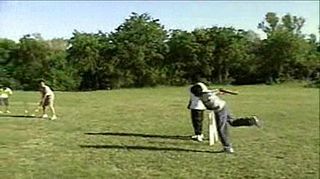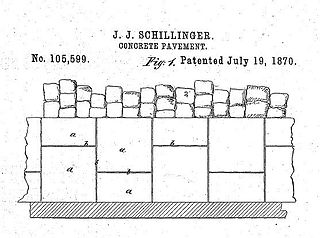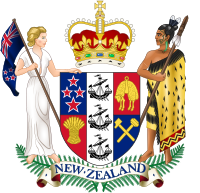At common law, damages are a remedy in the form of a monetary award to be paid to a claimant as compensation for loss or injury. To warrant the award, the claimant must show that a breach of duty has caused foreseeable loss. To be recognized at law, the loss must involve damage to property, or mental or physical injury; pure economic loss is rarely recognized for the award of damages.

The Exxon Valdez oil spill was a major environmental disaster that made worldwide headlines in the spring of 1989 and occurred in Alaska's Prince William Sound on March 24, 1989. The spill occurred when Exxon Valdez, an oil supertanker owned by Exxon Shipping Company, bound for Long Beach, California, struck Prince William Sound's Bligh Reef, 6 mi (9.7 km) west of Tatitlek, Alaska at 12:04 a.m. The tanker spilled more than 10 million US gallons (240,000 bbl) of crude oil over the next few days.
Punitive damages, or exemplary damages, are damages assessed in order to punish the defendant for outrageous conduct and/or to reform or deter the defendant and others from engaging in conduct similar to that which formed the basis of the lawsuit. Although the purpose of punitive damages is not to compensate the plaintiff, the plaintiff will receive all or some of the punitive damages in award.

Specific performance is an equitable remedy in the law of contract, whereby a court issues an order requiring a party to perform a specific act, such as to complete performance of the contract. It is typically available in the sale of land law, but otherwise is not generally available if damages are an appropriate alternative. Specific performance is almost never available for contracts of personal service, although performance may also be ensured through the threat of proceedings for contempt of court.

Pennzoil is an American motor oil brand currently owned by Shell plc. The former Pennzoil Company had been established in 1913 in Pennsylvania, being active in business as an independent firm until it was acquired by Shell in 2002, becoming a brand of the conglomerate.

Miller v Jackson [1977] QB 966 is a famous Court of Appeal of England and Wales case in the torts of negligence and nuisance. The court considered whether the defendant - the chairman of a local cricket club, on behalf of its members - was liable in nuisance or negligence when cricket balls were hit over the boundary and onto the property of their neighbours, Mr and Mrs Miller, the plaintiffs.
Feltner v. Columbia Pictures Television, Inc., 523 U.S. 340 (1998), was a case in which the Supreme Court of the United States ruled that if there is to be an award of statutory damages in a copyright infringement case, then the opposing party has the right to demand a jury trial.

Wallace v United Grain Growers Ltd, 1997 CanLII 332, [1997] 3 SCR 701 is a leading decision of the Supreme Court of Canada in the area of Canadian employment law, particularly in determining damages arising from claims concerning wrongful dismissal.
Economic loss is a term of art which refers to financial loss and damage suffered by a person which is seen only on a balance sheet and not as physical injury to person or property. There is a fundamental distinction between pure economic loss and consequential economic loss, as pure economic loss occurs independent of any physical damage to the person or property of the victim. It has also been suggested that this tort should be called "commercial loss" as injuries to person or property can be regarded as "economic".
Browning-Ferris Industries v. Kelco Disposal, 492 U.S. 257 (1989), was a case in which the Supreme Court of the United States held that the Eighth Amendment's prohibition of unreasonable fines does not apply to punitive-damage awards in civil cases when the United States is not a party.

Schillinger v. United States, 155 U.S. 163 (1894), is a decision of the United States Supreme Court, holding that a suit for patent infringement cannot be entertained against the United States, because patent infringement is a tort and the United States has not waived sovereign immunity for intentional torts.

Lasercomb America, Inc. v. Reynolds, 911 F.2d 970 is an appeal filed in the United States Court of Appeals for the Fourth Circuit. Initially, Lasercomb filed an action against Holiday Steel for breach of contract, copyright infringement, misappropriation of trade secrets, fraud, unfair competition, and false designation of origin. The United States District Court ruled in favor of Lasercomb, awarding them punitive damages and actual damages for fraud, rejecting the defense of copyright misuse. On appeal, based on a recognition of the similarity to patent misuse, the holding was reversed, deeming the language contained in the license agreement unreasonable.

AVX Corporation is an American manufacturer of electronic components headquartered in Fountain Inn, South Carolina. It is the largest industrial employer in Horry County, South Carolina, with almost 1000 workers in Myrtle Beach and Conway. AVX has 9,900 employees and operates in the United States, Europe and Asia. AVX is a subsidiary of Kyocera Electronics Corporation.

Sterling v. Velsicol Chemical Corp., 855 F.2d 1188, was an environmental lawsuit filed by citizens of Hardeman County, Tennessee, led by Steven Sterling, who sued Velsicol Chemical Corporation for contaminating their water supply through improper disposal of toxic chemicals.
The Jacksonville, Maryland, ExxonMobil gas leak case is a series of lawsuits against ExxonMobil as a result of a February 2006 underground gasoline leak from an ExxonMobil service station in Jacksonville, Maryland.
Pfizer Inc. v. Government of India, 434 U.S. 308 (1978), decision of the Supreme Court of the United States in which the Court held that foreign states are entitled to sue for treble damages in U.S. courts, and should be recognized as "persons" under the Clayton Act.
Apple Inc. v. Samsung Electronics Co., Ltd. is the general title of a series of patent infringement lawsuits between Apple Inc. and Samsung Electronics in the United States Court system, regarding the design of smartphones and tablet computers. Between them, the two companies have dominated the manufacturing of smartphones since the early 2010s, and made about 40% of all smartphones sold worldwide as of 2024. In early 2011, Apple initiated patent infringement lawsuits against Samsung, who typically responded with countersuits. Apple's multinational litigation over technology patents became known as part of the smartphone wars: extensive litigation and fierce competition in the global market for consumer mobile communications.

Sid & Marty Krofft Television Productions Inc. v. McDonald's Corp. (1977) was a case in which puppeteers and television producers Sid and Marty Krofft alleged that the copyright in their H.R. Pufnstuf children's television program had been infringed by a series of McDonald's "McDonaldland" advertisements. The finding introduced the concepts of extrinsic and intrinsic tests to determine substantial similarity.

Southcott Estates Inc v Toronto Catholic District School Board, 2012 SCC 51, [2012] 2 SCR 675, is a landmark case of the Supreme Court of Canada in the area of commercial law, with significant impact in the areas of:

Daniels v Thompson CA86/96 [1998] NZCA 3; [1998] 3 NZLR 22 is a cited case in New Zealand regarding exemplary damages in tort, in order to get around the normal restrictions that ACC legislation place on injury claims.











